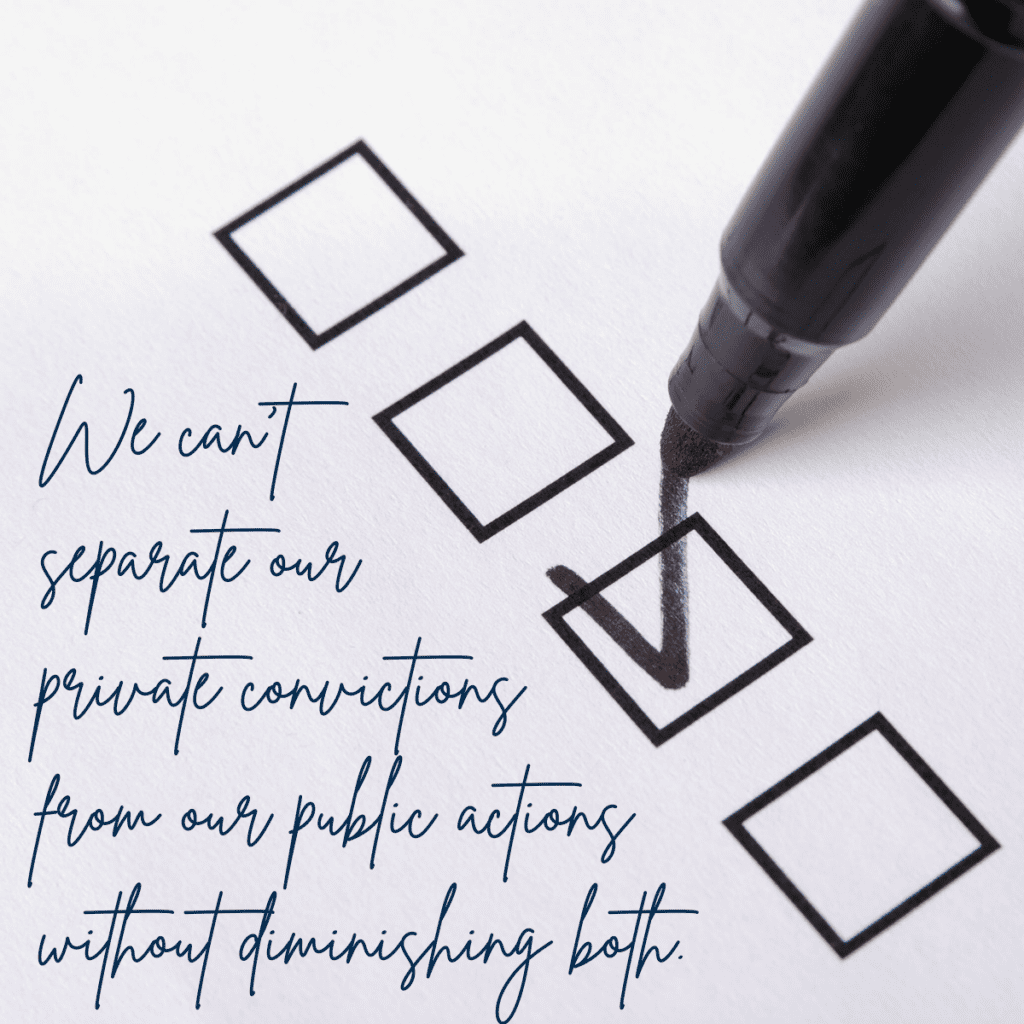Active, Vocal, & Morally Consistent

Dear Sisters and Brothers in Christ,
The Gospel for today utters the oft-repeated line from Jesus, “repay to Caesar what belongs to Caesar and to God what belongs to God.” Below is an excerpt from a review by Salt and Light TV of Archbishop Charles Chaput’s book “Render Unto Caesar” published in 2009.
“Few topics in recent years have ignited as much public debate as the balance between religion and politics. Does religious thought have any place in political discourse? Do religious believers have the right to turn their values into political action? What does it truly mean to have a separation of church and state? The very heart of these important questions is here addressed by one of the leading voices on the topic, Archbishop Charles J. Chaput.
While American society has ample room for believers and nonbelievers alike, Chaput argues, our public life must be considered within the context of its Christian roots. American democracy does not ask its citizens to put aside their deeply held moral and religious beliefs for the sake of public policy. In fact, it requires exactly the opposite.


As the nation’s founders knew very well, people are fallible. The majority of voters, as history has shown again and again, can be uninformed, misinformed, biased, or simply wrong. Thus, to survive, American democracy depends on an engaged citizenry – people of character, including religious believers, fighting for their beliefs in the public square, respectfully but vigorously and without apology. Anything less is bad citizenship and a form of theft from the nation’s health. Or as the author suggests: Good manners are not an excuse for political cowardice.
American Catholics and other persons of good heart are part of a struggle for our nation’s future, says Charles J. Chaput. Our choices, including our political choices, matter. Catholics need to take an active, vocal, and morally consistent role in public debate. We can’t claim to personally believe in the sanctity of the human person and then act in our public policies as if we don’t. We can’t separate our private convictions from our public actions without diminishing both. In the words of the author, “How we act works backward on our convictions, making them stronger or smothering them under a snowfall of alibis.”
Sincerely yours in Christ Jesus, the Way, the Truth, and the Life,


